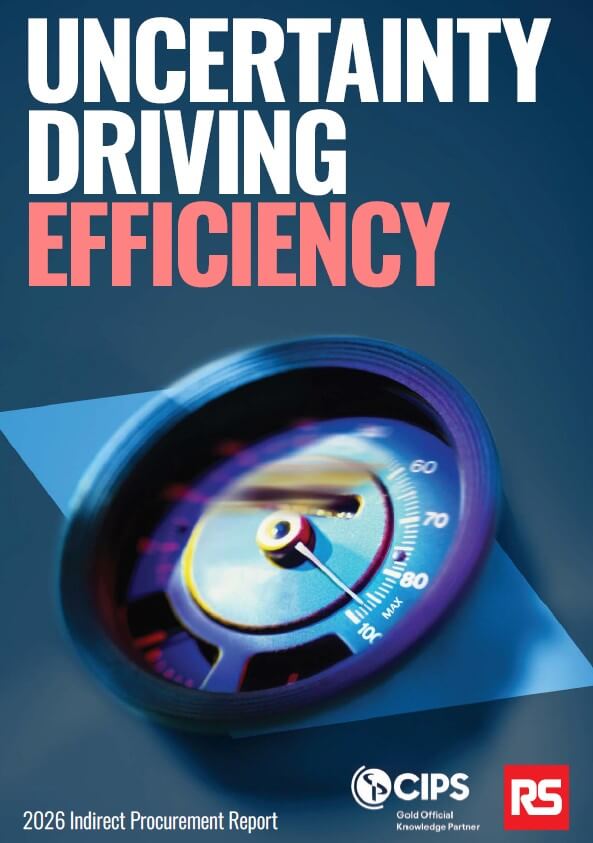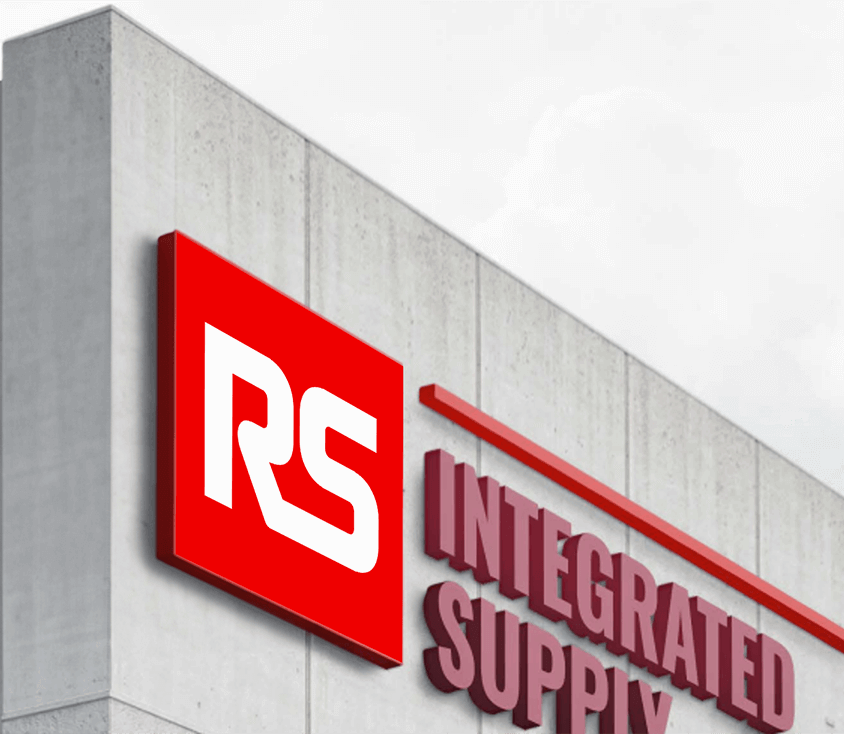Published on
Read time: 7 minutes

To mark International Women’s Day on March 8, we reflect on women’s experiences of the integrated supply industry
Gender diversity promotes equality and fairness in the workplace, creating a more inclusive and supportive environment for all employees,” argues Jessika Brenes, an account manager for RS Integrated Supply, a global supply chain solutions provider for maintenance, repair, and operations (MRO). “Having a balanced representation of women in leadership roles helps break down stereotypes and barriers.”
“Representation matters,” agrees Lindsey Tierney, an account director at RS Integrated Supply. “It is a factor in maintaining an upward trajectory, by inspiring others to get curious, ask questions, and follow their passions.”
Both women also recognize the business case for gender diversity in the integrated supply industry. “Women make the most difference by being active in the decision-making process, strategizing with stakeholders, and leading innovative solutions that bring value to our clients and the world,” says Tierney. “Diversity fosters innovation and creativity by bringing different perspectives and approaches to problem-solving,” adds Brenes. “Women bring unique insights and experiences to the table, leading to more comprehensive and effective solutions.”
There’s widespread evidence to back this up. In its latest research on diversity in business, global consultancy McKinsey discovered that “companies with representation of women [on the executive board] exceeding 30 percent (and thus in the top quartile) are significantly more likely to financially outperform those with 30 percent or fewer.” But how well are women represented in integrated supply?
Numbers are increasing
In its most recent survey of women in the supply chain, the technological research and consulting firm Gartner found that women now make up 41% of the workforce in this sector. They only hold 31% of frontline jobs but representation in C-suite and executive leadership roles is at an all-time high of 26%.
There has also been a 5% increase in women at the vice president level. “When a woman holds the most senior role of supply chain,” states the report, “there is more likely to be a higher percentage of women in the total workforce and all management levels.”
“In my early career in supply chain, there was usually only one woman in the room”
Tanya Penny Woods, director of the Center for Excellence in Supply Chain Management, Howard University
Tanya Penny Woods, director of the Center for Excellence in Supply Chain Management at Howard University in Washington, D.C., has witnessed this increase. She is the former Chief Procurement Office at Verizon. “In my early career in supply chain, there was usually only one woman in the room,” she says. “Just as I was leaving corporate America, that really changed.
“Also, when I look at the program here at Howard, in the four years that I’ve been here, it has shifted from a higher percentage of males to a higher percentage of females. In terms of education, we focus on STEM [Science, Technology, Engineering, and Math] careers. These seeds are being planted in high school and elementary school. You then start to see women in the room as they grow up feeling more comfortable with taking on analytical and technical jobs.”
Obstacles continue
Despite this growth in numbers, women still encounter professional barriers. “I would definitely have to say that the lack of respect in this male-dominated industry has been the biggest challenge,” observes Brenes. “Having said that, I have been able to prove my capabilities and gain not only the respect but the trust both internally and externally.”
“These issues can manifest differently at various stages of the career path”
Jessika Brenes, account manager, RS Integrated Supply
Brenes highlights other challenges for women in integrated supply beyond gender bias and discrimination, such as lack of opportunities for advancement and issues around work-life balance. “These issues can manifest differently at various stages of the career path,” she notes. “For example, entry-level women may face barriers to entry and initial skepticism about their abilities, while mid-career professionals may encounter obstacles related to career progression as most higher leadership roles are still dominated by men.”
Helen Ormerod, a buyer for RS Integrated Supply, sees these issues at play too. “Many women are still the main carers for children,” she says. “Juggling maternity leave and having to fit around children means that you have to be ‘better’ [than male colleagues] and prove you can do your job as well as having a family.
“You may not be considered for roles that need travelling as it can’t be made to fit in with your life,” she continues, “Or you may have less experience than someone who has not had any breaks in their role when it comes to promotion.
“These issues are not limited to supply roles, they affect women in all roles, but employers can have a massive impact on these points.”
Organizational culture matters
Employers are tackling structural hurdles, says Beth Morgan, founder of boom!, a worldwide community for women in supply chain and procurement roles. “That whole shift towards being very purposeful about removing any unconscious biases and changing cultures to make them more inclusive is important,” she says. “Although companies are still in various stages of maturity when it comes to promoting diversity, equity and inclusion, it’s so good to see that many have started out on the journey.”
“You need senior leadership to say this is important to us”
Beth Morgan, founder, boom!
“But…this has to come from the top down. You need senior leadership to say this is important to us, this is why, and these are the ways we are going to invest in this.”
An inclusive culture can play a hugely important role in attracting and retaining female talent, as Tierney’s experience illustrates. “Throughout my college years, I worked as a lifeguard at a private social and athletic club in New York City,” she explains. “It was through that job that I connected with a senior leader from RS Integrated Supply. He knew I recently graduated with a degree in Operations Management and invited me to visit his team and storeroom.
“The part of the visit that resonated most was the sense of family and purpose. It’s that same culture that has kept me here for the past nine years, and I’m so grateful to not only be connected to every person I met on that first introduction; I’m grateful for the experience of being their leader for the past two years.”
Looking forward
What does the future for women in this industry look like? “The outlook for women in integrated supply is positive,” says Brenes, “with increasing recognition of the importance of gender diversity and inclusion in the industry. There is an increasing level of female representation and wonderful success stories of women that are breaking through in the industry.”
“I am proud to work for a company that sees women in such a positive light”
Helen Ormerod, buyer, RS Integrated Supply
Ormerod echoes these sentiments. “We have a very strong female leadership team,” she says of RS Integrated Supply. “We have women in a huge range of positions, including those that have traditionally been seen as much more male dominated, so this is great, and it is getting better all the time. I am proud to work for a company that sees women in such a positive light and supports them at all points in their careers.”
There is, of course, still plenty more work to be done. “I’m happy with where we are today, and I’m also happy to say that we’re just getting started,” says Tierney. “The future for women is bright if you’re interested and ready to work hard.
“I’d love to see a greater blend of women represented on the operations side of our business, a space that allows them to showcase their versatility and problem-solving capabilities while developing top-notch MRO programs for our clients.”
Supporting the next generation
Finally, what advice would the women working for RS Integrated Supply today give to women just starting out in the industry?
“Go for it, enjoy the challenges, take whatever opportunities you are given, and don’t be afraid to take a risk,” says Ormerod. Brenes advises seizing opportunities too: “Commit to learning, be open to learning from every experience, and seek out mentors who can provide guidance and support.”
“Don’t be afraid to voice your ideas and opinions, and actively seek opportunities to contribute and make an impact,” she continues. “Build strong relationships with colleagues (especially vendors), as networking and interpersonal skills are invaluable in getting more positive results.”
“Start your journey from a place of learning and keep that mindset throughout”
Lindsey Tierney, account director, RS Integrated Supply
Tierney likewise emphasizes the need to keep learning and building relationships. “Start your journey from a place of learning and keep that mindset throughout the length of your career,” she says. “At RS Integrated Supply, you’ll access educational pathways, collaborate with diverse colleagues, and grow alongside clients.
“Utilize your learnings to shape a better future.”





